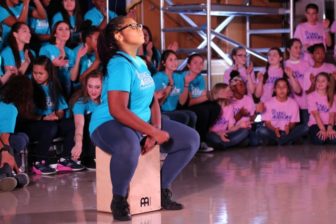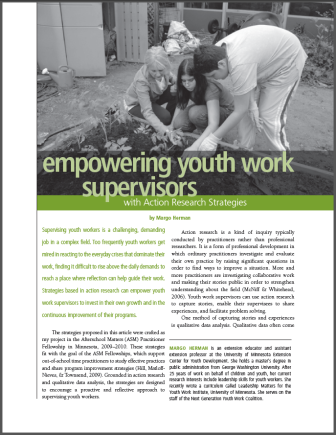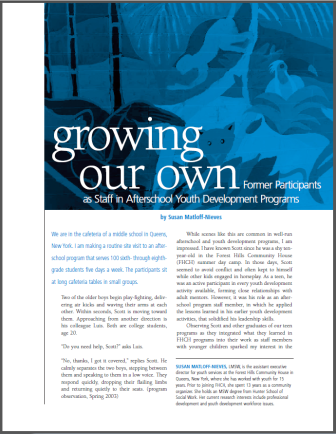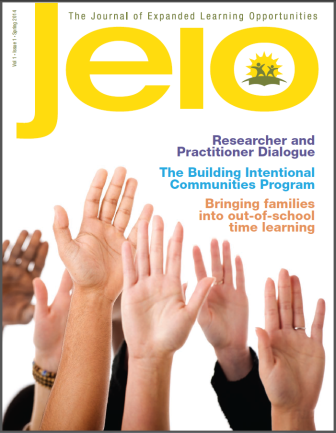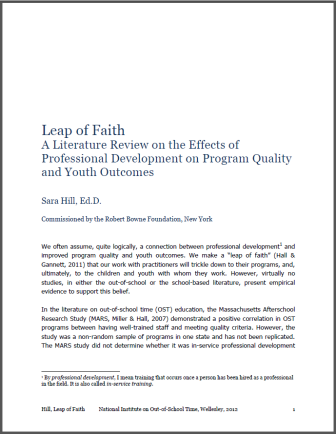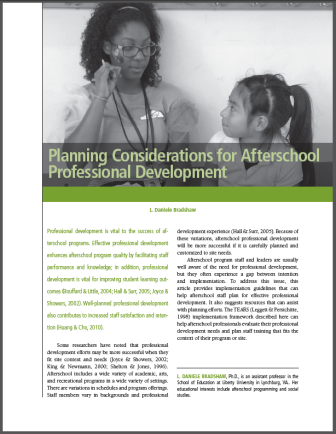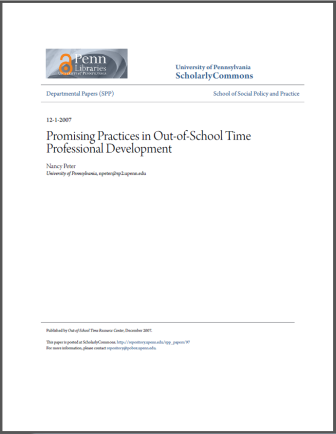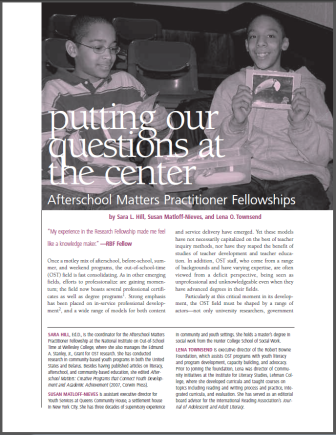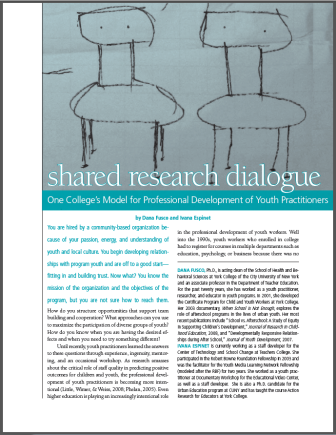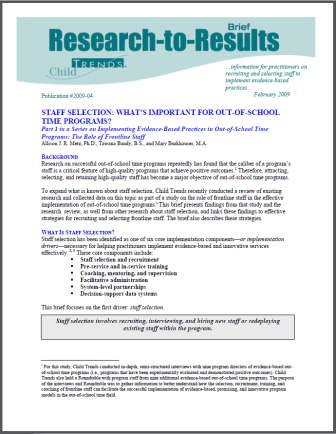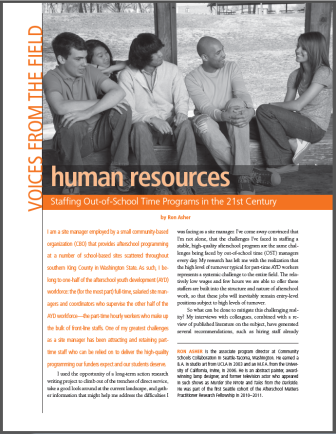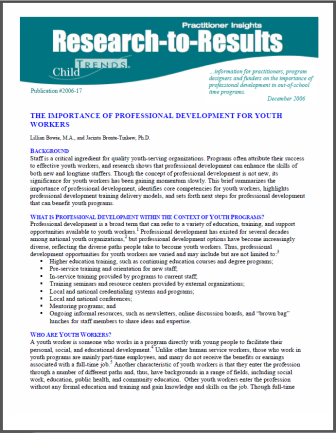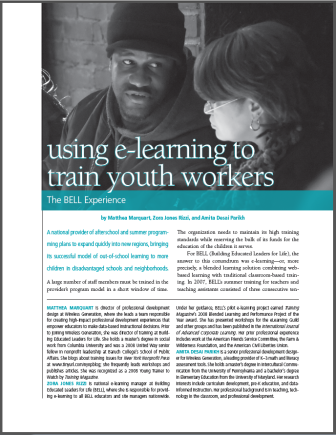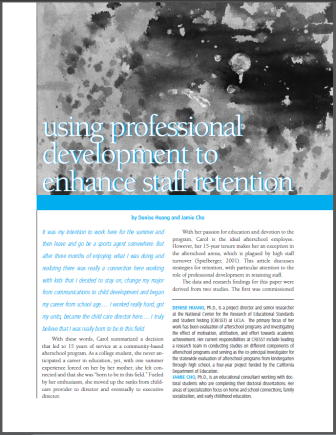
Explore & Download These Resources
Practice What We Preach: Supervisory Practice for Youth Worker Professional Development
This author, a practitioner-researcher in the youth field, posits that adults who work directly with youth need to be partners in their own development just as they partner with young people to encourage their development. She goes on to write, “A workplace that partners in developing its youth workers actively encourages three things: authentic relationships, emotional safety, and reflective learning.” The article provides suggestions for how to create a workplace that provides a model of effective professional development of front-line youth workers.
» Download the Article (PDF) «
Keeping Kids on Track During the Middle School Years
This article is a compendium of recommendations for how to engage and retain middle school youth, drawn from youth organizations and intermediaries convened by National Human Services Assembly. The recommendations identify staff and volunteer training and professional development as a key strategy.
» Download the Article (PDF) «
Why are OST Workers Dedicated – Or Not?
This study situates OST workers in the frame that career development literature calls “care workers.” OST line staff and site directors were surveyed to collect and quantify factors that led them to be more or less dedicated to their care work. The findings have implications for staff recruitment, training, and retention and for the institutional and policy development of OST programs.
» Download the Article (PDF) «
Getting the Right Fit
This study by Public Profit focuses on professional learning communities, and the essential elements that make them successful.
» Download the Article (PDF) «
Empowering Youth Work Supervisors with Action Research Strategies
An article that describes how to employ action research strategies with youth workers to improve their program practices.
Growing Our Own: Former Participants as Staff in Afterschool Youth Development Programs
This articles describes the special support that youth workers who were former participants in afterschool youth programs need as staff. This include training on worker skills, but also the recognition that they need to be provided with positive youth development support as well.
The Journal of Expanded Learning Opportunities – Vol. 1, Issue 1 (Spring 2014)
This volume of JELO has an article about creating intentional communities of practitioners in a new model of professional development.
Leap of Faith: A Literature Review on the Effects of Professional Development on Program Quality and Youth Outcomes
A literature review on outcomes of professional development on program quality and youth outcomes. Identifies best practices in professional development.
Planning Considerations for Afterschool Professional Development
This article provides guidelines that can help afterschool staff plan for effective professional development by using the the TEARS implementation framework.
Promising Practices in Out-of-School Time Professional Development
This report provides a working definition of professional development in OST, which is professional development includes activities, resources, and supports that help out-of-school time practitioners work with or on behalf of children and youth. The document also identifies types of professional development that falls within this framework.
Putting Our Questions at the Center: Afterschool Matters Practitioner Fellowships
An article that describes the National Afterschool Matters Practitioner fellowship, a long term professional development opportunity that engages youth practitioners in action research and reflective inquiry.
Shared Research Dialogue: One College’s Model for Professional Development of Youth Practitioners
An article that describes a college course for youth workers and youth practitioners that incorporates action research and reflective practice as part of the curriculum.
Staff Selection: What’s Important for Out-of-School Time Programs
This brief by Child Trends presents findings from a study of staff selection in OST, and links these findings to effective strategies for recruiting and selecting frontline staff.
Staffing Out-of-School Time Programs in the 21st Century
A study by the director of a 21st CCLC to understand how to best address the challenges of hiring and retaining staff at afterschool programs. The author finds presents some recommendations such as hiring staff already working in the school building, encouraging university teaching programs to include internships at OST programs as part of their required coursework, and concentrating scarce professional development resources on full-time staffers rather than part-time workers.
The Importance of Professional Development for Youth Workers
This research brief by Child Trends summarizes the importance of professional development, identifies core competencies for youth workers, highlights professional development training delivery models, and sets forth next steps for professional development that can benefit youth programs.
Using E-learning to Train Youth Workers
A description of a program that used e-learning to provide training for staff at a large afterschool program, and a discussion of some of the challenges in doing so.
Using Professional Development to Enhance Staff Retention
Staff retention is one of the biggest challenges that OST programs face. This article extracts critical data and findings from studies that show how professional development may create a program climate conducive to effective staff retention.





